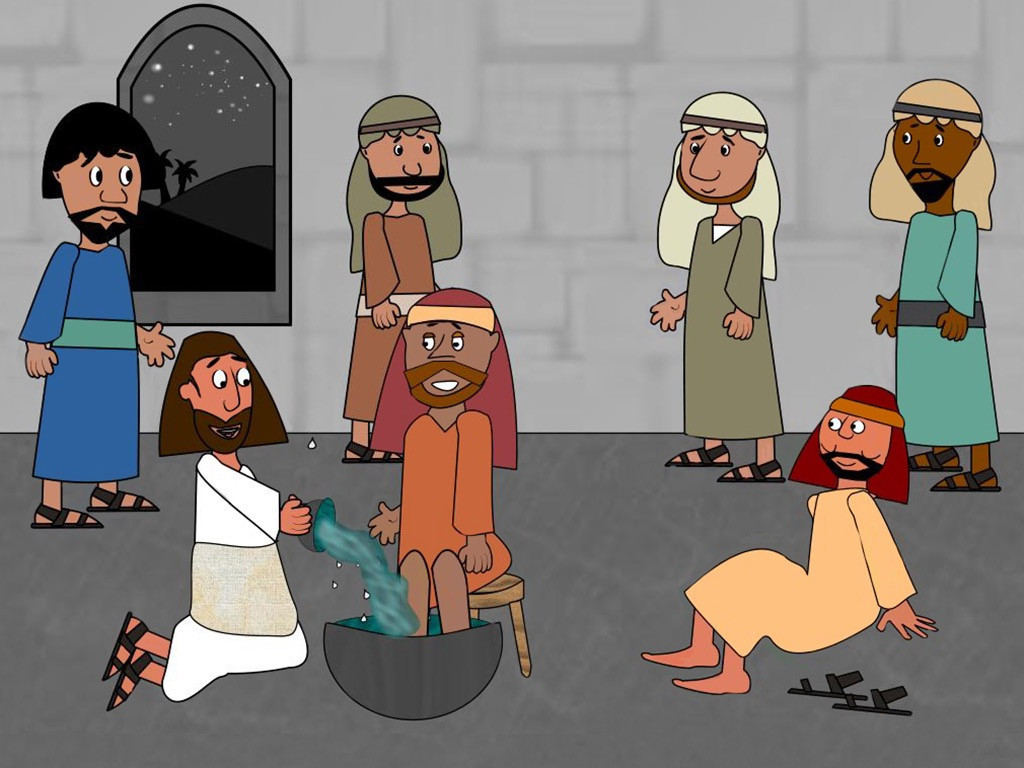I have much more to say to you, more than you can now bear.” – John 16:12
Now, the ‘Last Supper’ approached. After Jesus washed his disciples’ feet (He poured water into a basin and began to wash his disciples’ feet – John 13:5), he spoke at length because it was time to prepare for death. The teachings at the Last Supper are especially well documented in the Gospel of John. This includes the moment when he says, “I am the way and the truth and the life” (John 14:6), and scenes predicting his death and resurrection are also found here.
And he spokes of loving one another. “No one has greater love than this, to lay down one’s life for one’s friends.” (John 15:13) In other words, “I (Jesus) will lay down my life for you.” Therefore, he said, “Love each other as I have loved you.” (John 15:12). And he left them with the words, “I have much more to say to you, more than you can now bear.

In Korean, expressions like “better than” or “prettier than” correspond to the comparative form in English. The usage in English is simply <comparative form of adjective or adverb + than>, which can be interpreted as “more than.” Consider the following Bible verse:
“I tell you the truth, no servant is greater than his master, nor is a messenger greater than the one who sent him. (John 13:16)”
This message means not to be arrogant but to do well, as I send you. Alongside the comparative form, there’s also the superlative form, used to express the highest degree among comparisons. The method is similar to the comparative form, by adding ~est to the end of an adjective or adverb, or placing “the most” before the word.
“The greatest among you will be your servant. (Matthew 23:11)”
The definite article is used with the superlative because it selects the highest among many. However, remember that “the” is not used with adverb superlatives because adverbs modify verbs, and it’s not logical to attach “the” to a verb.
Do with her whatever you think best. (Genesis 16:6)
The use of comparatives and superlatives is as simple as the example above. If there’s a minor issue, it’s that adjectives and adverbs need to be made into their comparative or superlative forms, but this is mostly a matter of regular changes, so remembering a few important irregular words should suffice. Generally, for long words of three syllables or more, and two-syllable words ending in ful, ble, less, ive, ing, etc., simply add more or most in front to form the comparative and superlative forms, such as <expensive – more expensive – most expensive>. Think of three syllables as being equivalent to three letters in our language.
Then Balak sent other princes, more numerous and more distinguished than the first. (Numbers 22:15)
However, for shorter, simpler adjectives and adverbs, add [~er] and [~est] to form the comparative and superlative forms. If this process creates pronunciation issues, exceptions are made. For example, words ending in -e do not need an additional e, and those ending in -y change the y to i before adding ~er or ~est, resulting in forms like simple – simpler – simplest and easy – easier – easiest.
Which is easier: to say, ‘Your sins are forgiven,’ or to say, ‘Get up and walk’? (Luke 5:23)
There are also exceptions for two-syllable words where more and most are used instead. Although the Bible uses expressions like “more humble,” in modern English, simpler forms like “humbler” may seem more appropriate.
Now Moses was a very humble man, more humble than anyone else on the face of the earth. (Numbers 12:3)
Let’s remember a few important irregular words that change completely: good (adjective), well (adverb) – better – best; many, much – more – most; bad, ill – worse – worst; far -farther, further – farthest, furthest. The adjective far means “at a great distance,” and the adverb far has a meaning similar to much. However, farther, farthest refer to physical distance, while further, furthest indicate degree or extent.
Going a little farther, he fell with his face to the ground and prayed, “My Father, if it is possible, may this cup be taken from me. Yet not as I will, but as you will.” (Matthew 26:39)
The comparative expression “The more… the more…” is very useful for indicating that the more something happens, the more another thing happens.
Jesus commanded them not to tell anyone. But the more he did so, the more they kept talking about it. (Mark 7:36)
Latin Comparative Usage
Words derived from Latin, such as inferior, superior, senior, prior, major, junior, inherently carry a comparative meaning, so there’s no need to change them into a comparative form. However, when these words are used in comparative sentences, “to” is used instead of “than.”
“But I do not think I am in the least inferior to those ‘super-apostles.’” – 2 Corinthians 11:5
“But the ministry Jesus has received is as superior to theirs as the covenant of which he is mediator is superior to the old one, and it is founded on better promises.” – Hebrews 8:6

